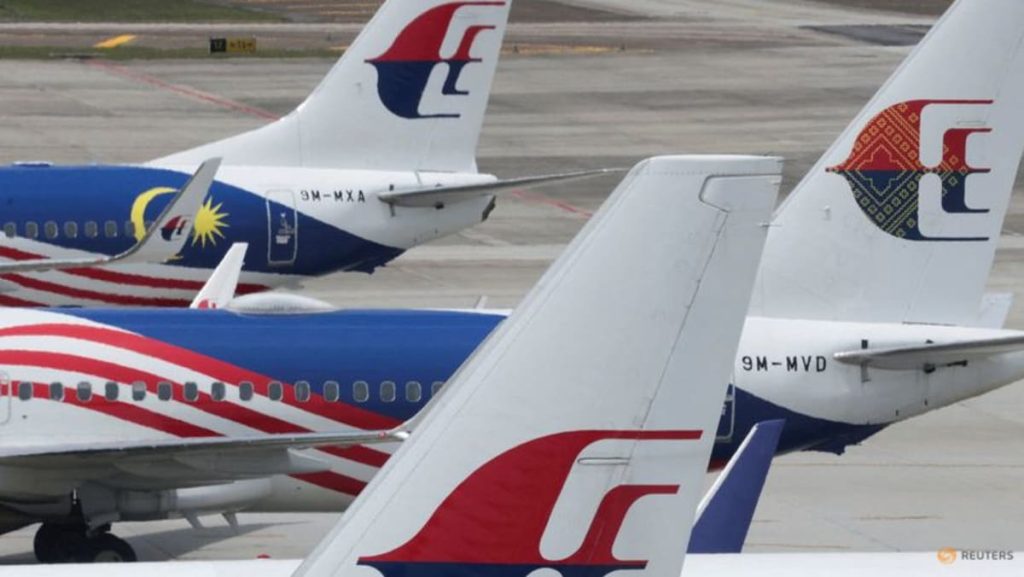Malaysia Airlines’ ambitious fleet modernization program has encountered a significant setback with the grounding of its brand-new Airbus A330neo just days after its inaugural flight. The grounding, attributed to unresolved technical issues originating from the factory, has sparked concerns about safety and reputational damage for the struggling national carrier. CEO Izham Ismail expressed his frustration and embarrassment over the situation, emphasizing that safety remains paramount and that such technical glitches in a new aircraft are unacceptable. This incident marks another operational challenge for Malaysia Airlines, which has faced a turbulent year marked by route reductions, manpower shortages, and now, the unexpected grounding of a key component of its fleet renewal strategy.
The A330neo, a technologically advanced aircraft powered by Rolls-Royce Trent 7000 engines, was intended to be a cornerstone of Malaysia Airlines’ revitalization efforts. Its fuel efficiency and modern features were expected to enhance the airline’s competitiveness and long-haul capabilities. However, the technical problems encountered on the inaugural flight from Kuala Lumpur to Melbourne on December 19th have thrown a wrench into these plans. The specifics of the technical issues have not been fully disclosed, but CEO Ismail pointedly directed the responsibility towards the manufacturer, urging both Airbus and Rolls-Royce to thoroughly investigate the root cause. The grounding not only disrupts operational schedules but also raises broader questions about the reliability and quality control processes involved in the manufacturing and delivery of the A330neo.
The grounding of the A330neo adds to a string of operational challenges faced by Malaysia Airlines in recent times. The airline has been grappling with manpower shortages, leading to disruptions in flight schedules and customer service. Furthermore, the airline has been forced to reduce its flight routes, impacting its network connectivity and market reach. These operational issues, coupled with the recent grounding, underscore the precarious position of the national carrier and the urgent need for effective solutions to stabilize its operations and restore passenger confidence. The incident also highlights the financial implications of such groundings, including the loss of revenue from cancelled flights, the costs associated with alternative travel arrangements for passengers, and the potential damage to the airline’s brand image.
The technical issues surrounding the A330neo are currently under investigation by both Airbus and Rolls-Royce. Preliminary findings by Rolls-Royce point towards a faulty component as the source of the problem, while Airbus has pledged its full support in assisting Malaysia Airlines to resolve the issue. The timely resolution of these technical challenges is crucial for Malaysia Airlines to regain operational stability and continue its fleet modernization program. The outcome of the investigation will not only determine the future of the grounded A330neo but also influence the airline’s decision-making regarding the remaining 19 aircraft on order. A thorough and transparent investigation is essential to address the underlying technical concerns and prevent similar incidents from occurring in the future.
This incident highlights the complex interplay between aircraft manufacturers, engine suppliers, and airlines in ensuring the safe and reliable operation of new aircraft. The grounding of the A330neo underscores the importance of robust quality control measures throughout the manufacturing and delivery process. It also emphasizes the need for effective communication and collaboration between all stakeholders to address technical issues promptly and minimize operational disruptions. The incident serves as a reminder that even the most advanced aircraft are susceptible to technical glitches and that rigorous testing and maintenance procedures are essential to maintain safety and operational efficiency.
For Malaysia Airlines, the grounding of the A330neo represents a significant setback in its efforts to modernize its fleet and improve its competitiveness. The airline must now work closely with Airbus and Rolls-Royce to resolve the technical issues and ensure the safe return of the aircraft to service. Beyond this immediate challenge, Malaysia Airlines needs to address the broader operational issues that have plagued the airline in recent times, including manpower shortages and route reductions. A comprehensive and sustainable recovery strategy is crucial for the airline to navigate these challenges, regain market share, and secure its long-term viability in the increasingly competitive aviation industry. The airline’s ability to effectively manage this crisis and restore passenger confidence will be crucial for its future success.

